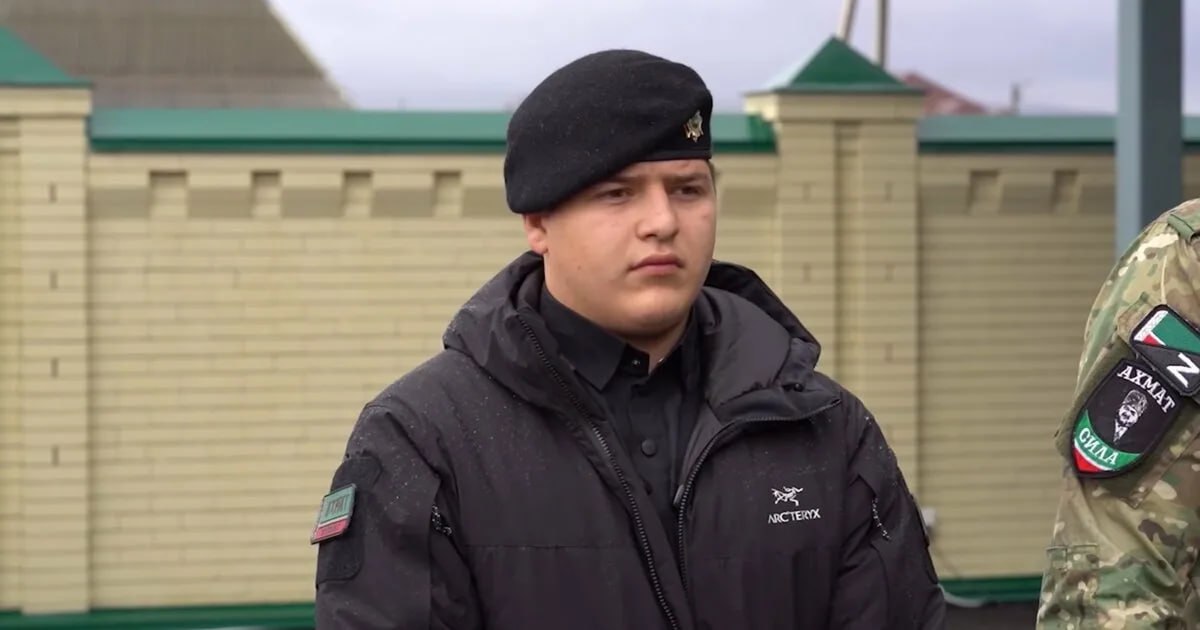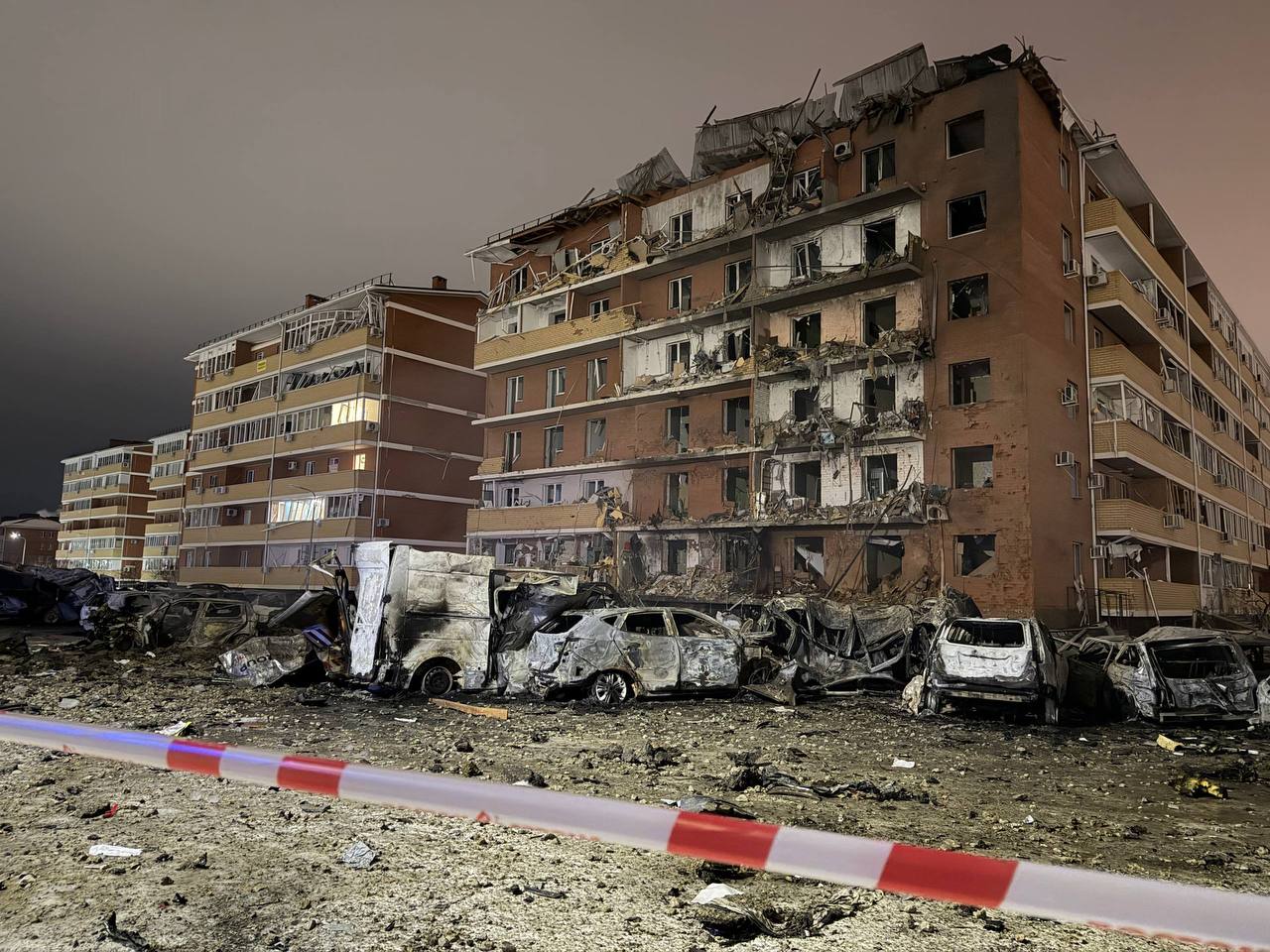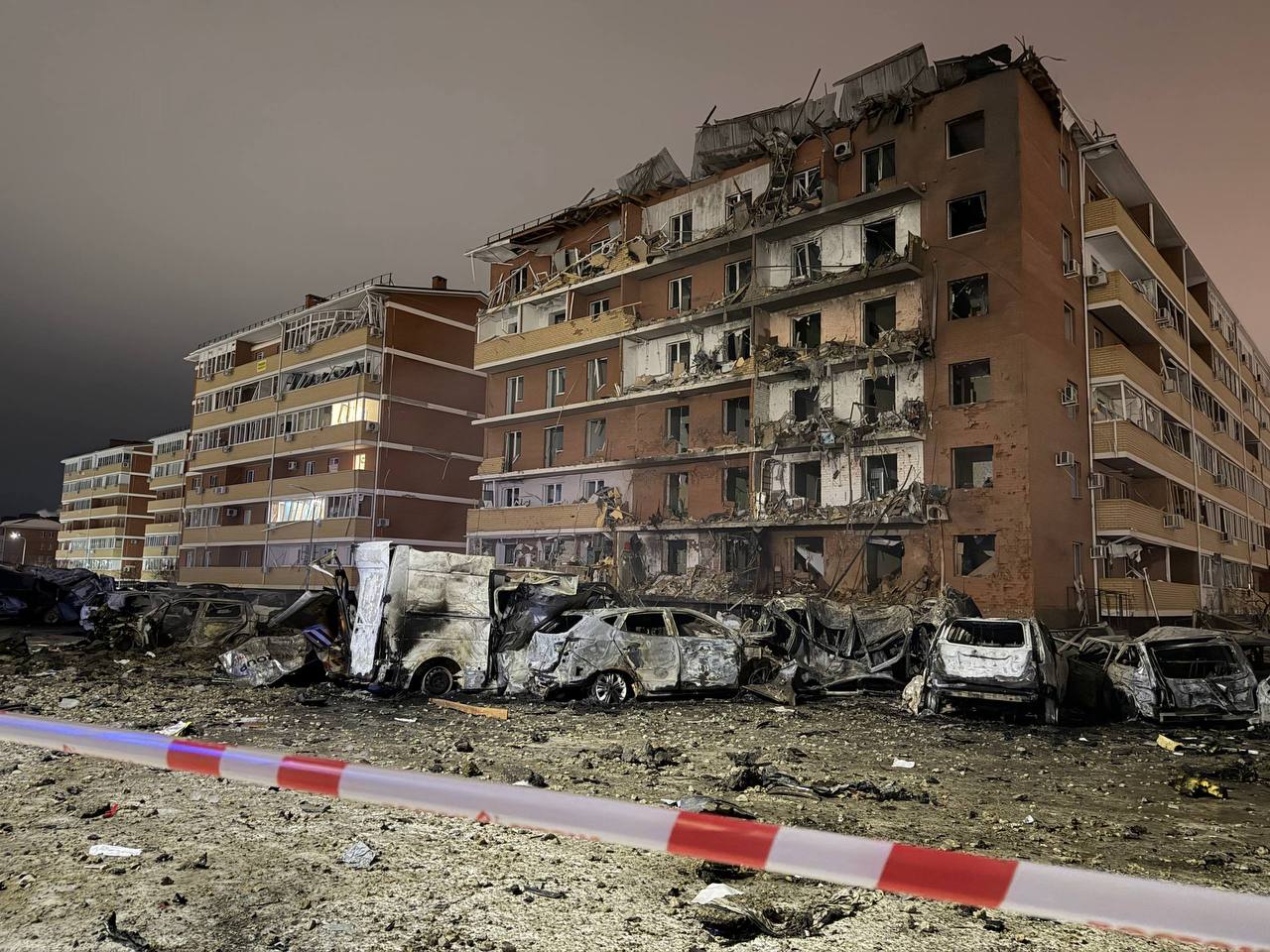The health of Adam Kadyrov, the son of Chechen leader Adam Kadyrov, who was injured in a traffic accident in Grozny, is improving, according to the Agency, citing sources close to the Russian presidential administration and the Chechen authorities.

December 5, 2001
***
At dawn, in the village of Gekhi-Chu, masked federal servicemen detained Vakha Gabisovich Tukaev, born in 1977. This happened according to what has become a “classic” scenario. The military surrounded the Tukaevs' household and broke into the house. A search was carried out in the house in gross violations of the current legislation: the military did not introduce themselves, did not present a warrant for the search, no witnesses were invited, and no protocol was drawn up based on the results of the search.
They did not find anything illegal with the Tukaevs. And yet, they detained Vakha. They did not say what he was suspected of or where he would be taken. His family only knew that the military took him towards the village of Gekhi. All day on December 5, Vakha’s father, Gabis, tried to find out who made the arrest and where Vakha was being held. However, he did not find answers to his questions in the regional law enforcement agencies. He was asked to agree with the “duty” version - the arrest was carried out by unknown military personnel. And for 11 days it was not possible to find out anything about the fate of the detainee.
***
Early in the morning, a military convoy of several vehicles and five or six armored personnel carriers drove into the village of Starye Atagi. Apparently, the servicemen intended to carry out a “targeted sweep”, but were ambushed. As a result of the ensuing shootout, in which the military also used large-caliber machine guns, Manzha Daudova, born in 1932, was killed in her bed. (Beregovaya St., 5), her son Khanpasha was wounded. The woman performed morning prayer, ate and went to bed when heavy fire was opened on the house. 32 bullet holes were found in the house. Three bullets hit Manzhi in the back and leg. There were several armored personnel carriers in the village, which drove around the village, shooting in different directions. Yunus Ibragimov's home was damaged. His cow and several chickens were killed, his outbuildings were badly damaged, and a fire broke out in his living quarters. It was possible to extinguish it only after the military left the village.
At the end of the battle, the members of the ChRI VF left in an unknown direction.
***
Russian soldiers kidnapped a resident of the village of Alkhan-Yurt, Aslan Maulaevich Dakaev, born in 1977, from a checkpoint near the village of Chernorechye in Grozny. As his relatives said, he was traveling on a regular bus to the city. The military took him out of the car, put him in an armored personnel carrier and drove him towards the center. He subsequently disappeared.
Significant efforts have been made to find him. However, the relatives did not write statements or appeals. Presumably, a search case was opened. When employees of the Human Rights Center “Memorial” asked for additional information, Aslan Tsakaev’s sister could not even say whether a criminal case had been opened. It is only known that on January 10, 2003, the prosecutor's office of the Chechen Republic gave instructions to the prosecutor's office of Grozny to check the circumstances of this abduction and make a decision on it. As of February 8, 2008, Aslan Tsakaev was considered missing.
***
At 3 a.m. in the city of Urus-Martan, up to 40 masked servicemen burst into the house of Amarbek Said-Magomedovich Sedaev (Sportivnaya St., 25) and beat the owner of the house. They took all the money that was kept in the house (750 dollars and 450 rubles), a gold chain and earrings from his wife. After this, the spouses were tied up, taken away from the house, and the house with all its property was blown up.
It is unclear why the Russian military personnel chose this particular house. A. Sedayev did not participate in the WF of the ChRI. Since 1978 he worked in the internal affairs bodies. During the first Chechen war in 1996, he worked as a security guard for the head of the pro-Russian regional administration. For his service he was awarded a medal, which was personally presented to him by the head of the then provisional government of the republic, N. Koshman.
In response to the bombing of his house, the victim contacted V. Kalamanov's office.
***
On December 5-12, in the mountain villages of Vedensky, Kurchaloevsky and Nozhai-Yurtovsky districts, the military carried out an operation to check the passport regime - a “cleansing operation”. During this operation, they engaged in outright armed robbery. Entering the houses of civilians, they took away valuables, food, and humanitarian aid. In the village of Dzhaglargi, a family with small children was kicked out of their house, and the house was blown up. Livestock was taken away. For residents of mountain villages, livestock was the breadwinner, since they had no other sources of income and the loss of a cow for a family was tantamount to starvation. During the “cleansing” a lot of livestock disappeared. It was with great difficulty that the administration, commandant's office, internal affairs department and the FSB of the region were notified of the lawless actions of the Russian military. These departments were informed that in the mountain villages of the region, civilians were being held hostage, beaten and abused. However, no measures were taken to suppress lawless actions.
The operation was carried out by troops commanded by General Nikolai Bogdanovsky. The detained people were handed over to the head of the department of the Kurchaloevsky district of the Federal Security Service of the Russian Federation for the Chechen Republic, Oleg Afonin, at that time a lieutenant colonel. During the year of his business trip to Kurchaloy, presumably from the city of Samara, a large number of local residents disappeared without a trace, many of them were found blown up. According to the stories of people who were detained, Oleg Afonin himself took part in torture.
Residents of mountain villages who suffered during the “cleansing” were careful not to complain, since the military promised to return. The previous operation in these communities took place two weeks earlier. Then they also promised to return and in the end they really did return. In all the villages, the heads of administration were forced to sign an act stating that the “cleansing” took place without violating the order of the Prosecutor General of the Russian Federation No. 46 of July 27, 2001. One of them, Taramov, who refused to sign the act, was kept in a hole for a day and eventually got his way.
The detainees were taken to the location of one of the Russian units in the village of Regita. They were placed in the basement of an unfinished house. There were also 18 people taken away from the village of Avtury.
Musa Khalidovich Magomedkhadzhiev, born in 1976, spoke about how the “cleansing” took place, using the example of his family. According to him, Russian soldiers broke into their house in the village of Regita on December 2 at about 5 p.m. They asked his last name, and then, putting a gun to the back of his head, they ordered his younger brother, Khusain Khalidovich Magomedkhadzhiev, born in 1978, to get ready. His mother, Satsita, tried to resist his abduction, but the military hit her on the head and she lost consciousness. Some of the soldiers were wearing masks. They arrived in an armored personnel carrier and a Ural. The kidnappers spoke Russian without an accent. They did not hide the fact that they were subordinates of General Nikolai Bogdanovsky.
Khusain Magomedkhadzhiev was found murdered on February 9, 2002 in the forest near the cemetery in the village of Achireshki. The corpse was blown up, but the head was never found. The body was collected in parts; there were signs of violent death on the torso and lower limbs. Identification was made based on the remains of clothing.
On December 5, under similar circumstances, Musa Magomedkhadzhiev was taken away from the house by military men in masks and without them, who arrived in an armored personnel carrier and a Ural car without license plates. He was taken to the military unit in the village. For five days he was kept in the basement of an unfinished house, where, besides him, there were about 60 other people. Musa Magomedkhadzhiev was interrogated, trying to find out where he got the Niva car from. The military argued that only those “connected with Basayev and Khattab” could have them. The interrogations were accompanied by beatings. He was released on December 10, two days before the end of the operation itself.
The Memorial Human Rights Center does not have complete information about the events that took place in mountain villages. However, it is known that at least three people were killed there:
1. Khusain Khalidovich Magomedkhadzhiev, born in 1978
2. 17-year-old Abdul-Vakhid Madagov, resident of the village of Belty. Taken away from home by the military. On December 12, after the departure of the federal forces, his mutilated corpse (without eyes, ears and scalp) was found in the village of Regita, at the place where the headquarters for the operation had previously been stationed.
3. Mokhma Alarkhanov, 48 years old, father of nine children. His corpse was found on December 13 near the village of Dzhaglargi with a broken head and signs of violent death.
Missing:
1. Khanpasha Kaimov, born in 1971, Achireshki village. On December 4, at about eight o'clock, he was taken from his home. The arrest was carried out by masked soldiers who arrived in an armored personnel carrier and a Ural vehicle (without license plates). The witnesses were father, Khasi Khasmagomedovich Kasimov, sister Galina and brother Abubakar. Neighbors also watched what was happening. The ethnicity of the kidnappers is Russian. The military did not present any documents. The detainee's father was told that his son would be interrogated and released. But when he tried to go with them, he was thrown out of the car.
In January 2002, the head of the administration of the village of Gezinchu, Shamkhan Zavadayevich Banzhaev, told Khasi Kaimov that, according to the information he had, shortly before this conversation (three days ago), his son and two other young people were taken from Khankala by train to Russia. Allegedly, he received information about this from a former colleague stationed at this base.
Kaimov's relatives contacted the police department and the prosecutor's office. Criminal case No. 54023 was opened on the fact of “kidnapping”. Only on August 20, 2005, the father of the kidnapped Khasi Kaimov was recognized as a victim. The relatives did not go to court regarding the inaction of the prosecutor's office and did not file a complaint with the European Court of Human Rights.
2. Khizri Gikhaevich Saibatarov, born in 1966, village Yalkhoy-Mokhk. He was kidnapped by the Russian military and disappeared. On March 18, 2002, in accordance with Article 126 Part 1 (kidnapping) of the Criminal Procedure Code of the Russian Federation, criminal case No. 75029 was initiated. According to Section 3 of Article 195 (due to the impossibility of identifying the persons involved in the commission of the crime) of the Criminal Procedure Code of the RSFSR, On May 18 of the same year it was suspended.
Residents of mountain villages, speaking about the events of early December, did not fail to emphasize that the military commandant of the Nozhai-Yurtovsky district fulfilled the promise he made after the November “cleansing” of Khidi-Khutor. According to them, on the morning of December 10, a rifle company of the local commandant’s office lined up along the border of the Nozhai-Yurt, Vedensky and Kurchaloevsky districts (from Shuani to Gordali), blocking the way for the troops approaching from below. They allegedly stood for some time, turned and began to descend to the plain. Memorial Human Rights Center has no other confirmation of this story.
From the book “People Live Here”, Usam Baysaev, Dmitry Grushkin, 2006.



